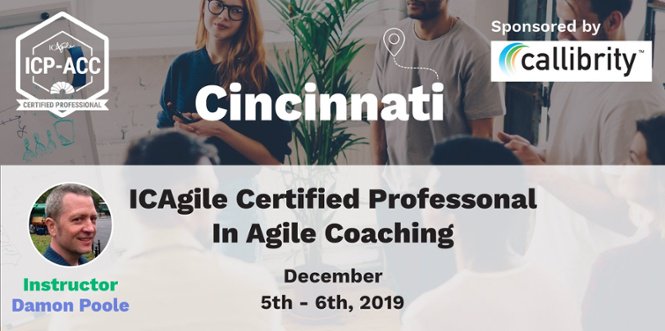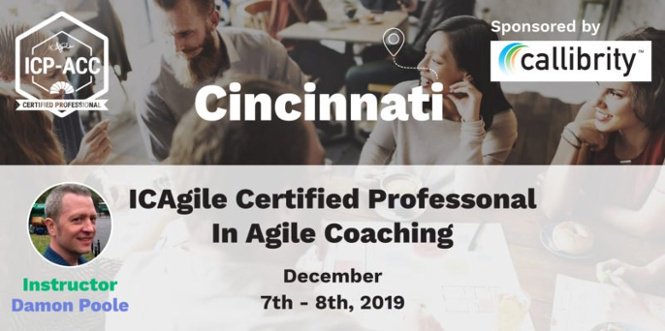The term “Agile Coach” has many interpretations. One of the most common seems to be Agile Expert or Agile Consultant. Perhaps it is because we don’t usually use the word “Coach” in the software industry. Can you imagine a Java Coach or a Docker Coach? To be a good Agile Coach, you do need to have Agile Expertise, but I think you need more than that.
Let’s use Scrum as an example. You can take a 2 day Scrum course and be presented with all of the knowledge you need to do Scrum. But why does it take 2 days? There’s really only a handful of concepts in Scrum. In fact, it can be described in a single (longish) paragraph.
Scrum: Form a small ( 5-9 person ) cross functional team around the kind of work that needs to be done. The team breaks the work down into small valuable chunks that can be delivered to the customer in a short amount of time, eg a week or two. Order the work by value in a backlog. Have one of the people on the team be responsible for ordering the work by value, typically by interacting with customers and other stakeholders, often in partnership with the rest of the team. The team only works on what is in the backlog, and they are only on a single team. The team and only the team decides collectively how to do the work. Have a person on the team responsible for making sure that there is a collective team agreement and that it is regularly updated. On a regular basis, get together to discuss how things are going and make changes accordingly.
The reason that a Scrum course is 2 days is that a lot of the time is spent showing the value, hopefully from a “what’s in it for me” perspective, and having the participants do activities that jumpstart the process of turning knowledge into experience. But even that 2 days isn’t enough. And that’s where the skills of coaching come in.
Moving to Agile is hard. If it was easy, everybody would already be doing it and there would be no need for Agile Coaches. It is hard because the amount of change required to get the full value of Agile is always unexpected and often overwhelming. Agile requires revisiting entrenched beliefs, culture, process, thinking, and ways of working. Working with one person to shift thinking and help them see “what’s in it for me” is challenging enough. Doing that for a whole team compounds the difficulty, and the fact that it happens inside of a surrounding environment compounds the difficulty again.
This is where coaching skills come into play. When the Agile Coach walks out of the room, people are going to do what makes sense to them within their own perspective. Expertise alone won’t win the day. Coaching helps to surface blind spots and underlying beliefs that prevent specific changes, understand what’s holding people back, and to help people solve their own challenges rather than just telling them what to do. Coaching in and of itself is a wide and deep set of competencies that take time to learn and develop. These skills include active listening, emotional intelligence, asking open ended and non-leading questions, presence, holding back, remaining neutral, and many more.
Here are some resources to learn more about coaching and Agile coaching:
The International Coaching Federation’s core competencies
ICAgile’s Agile Coaching Track
The book, “Coaching Agile Teams” by Lyssa Adkins
Register for an upcoming ICAgile Agile Certified Coach workshop if you would like to hear more from Damon Poole.
Learn about how Callibrity embraces Agile best practices






